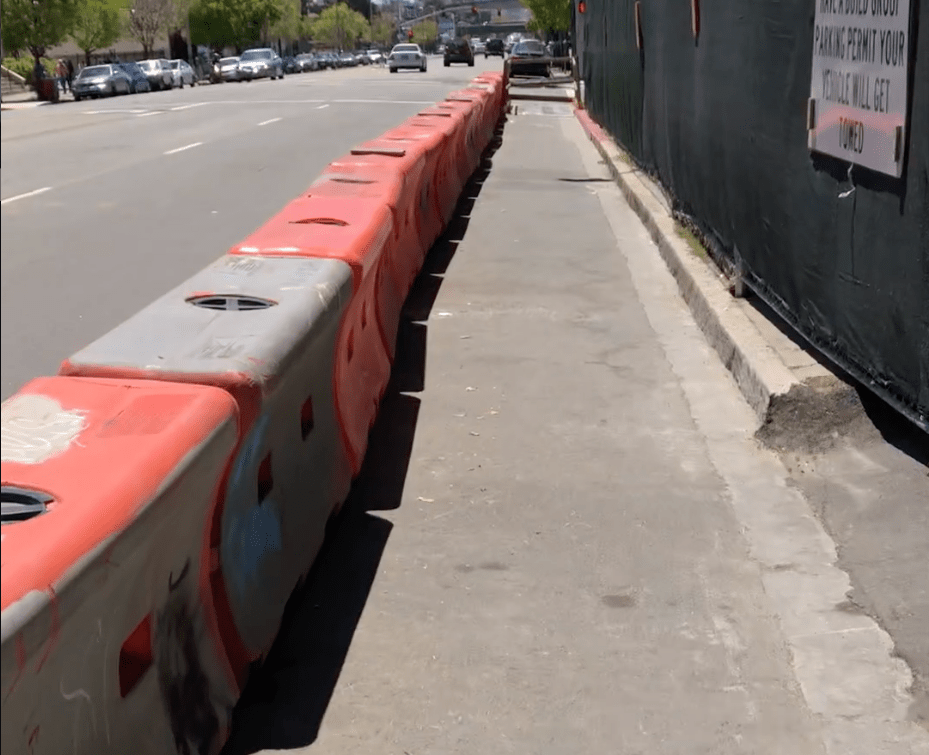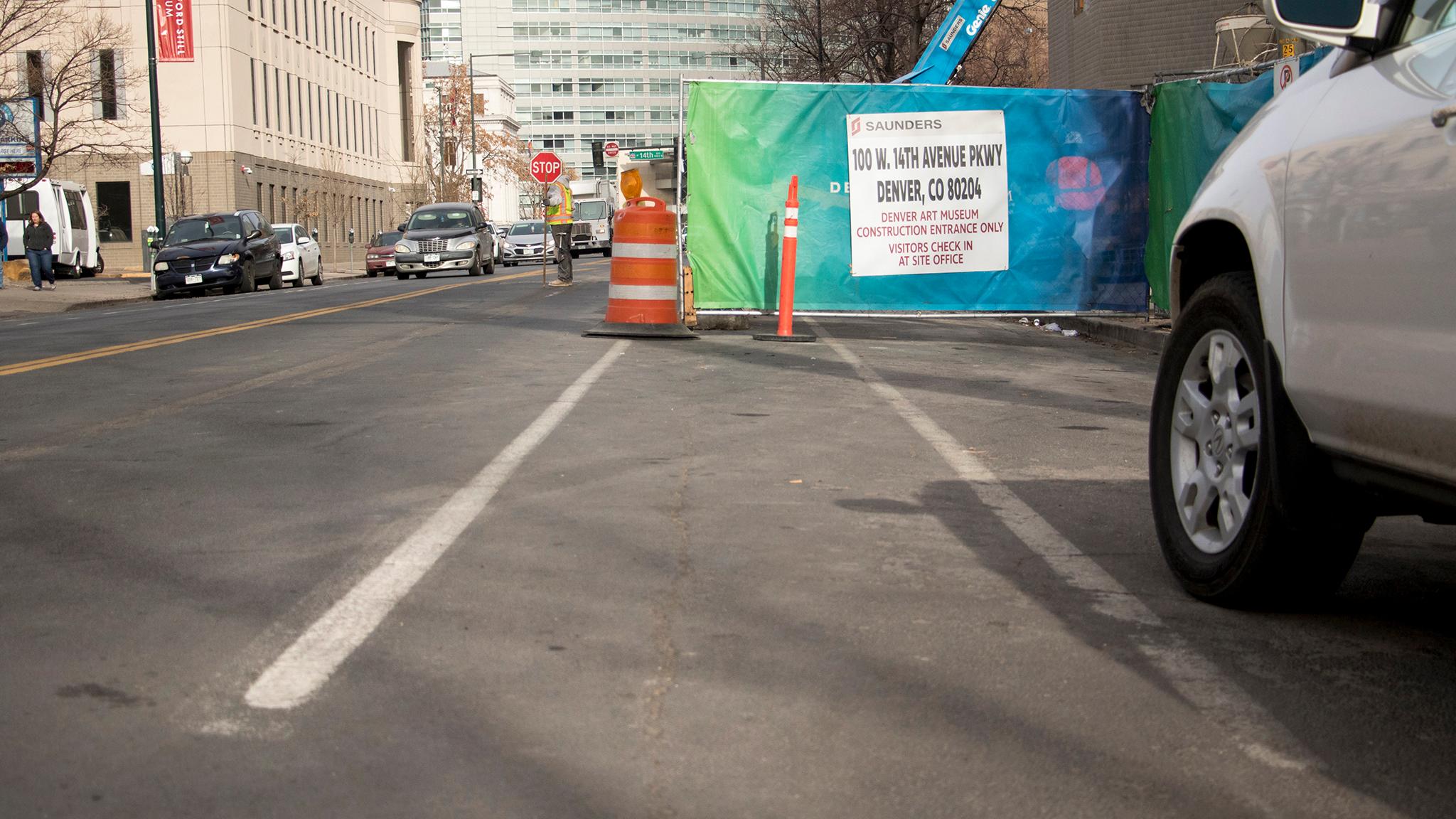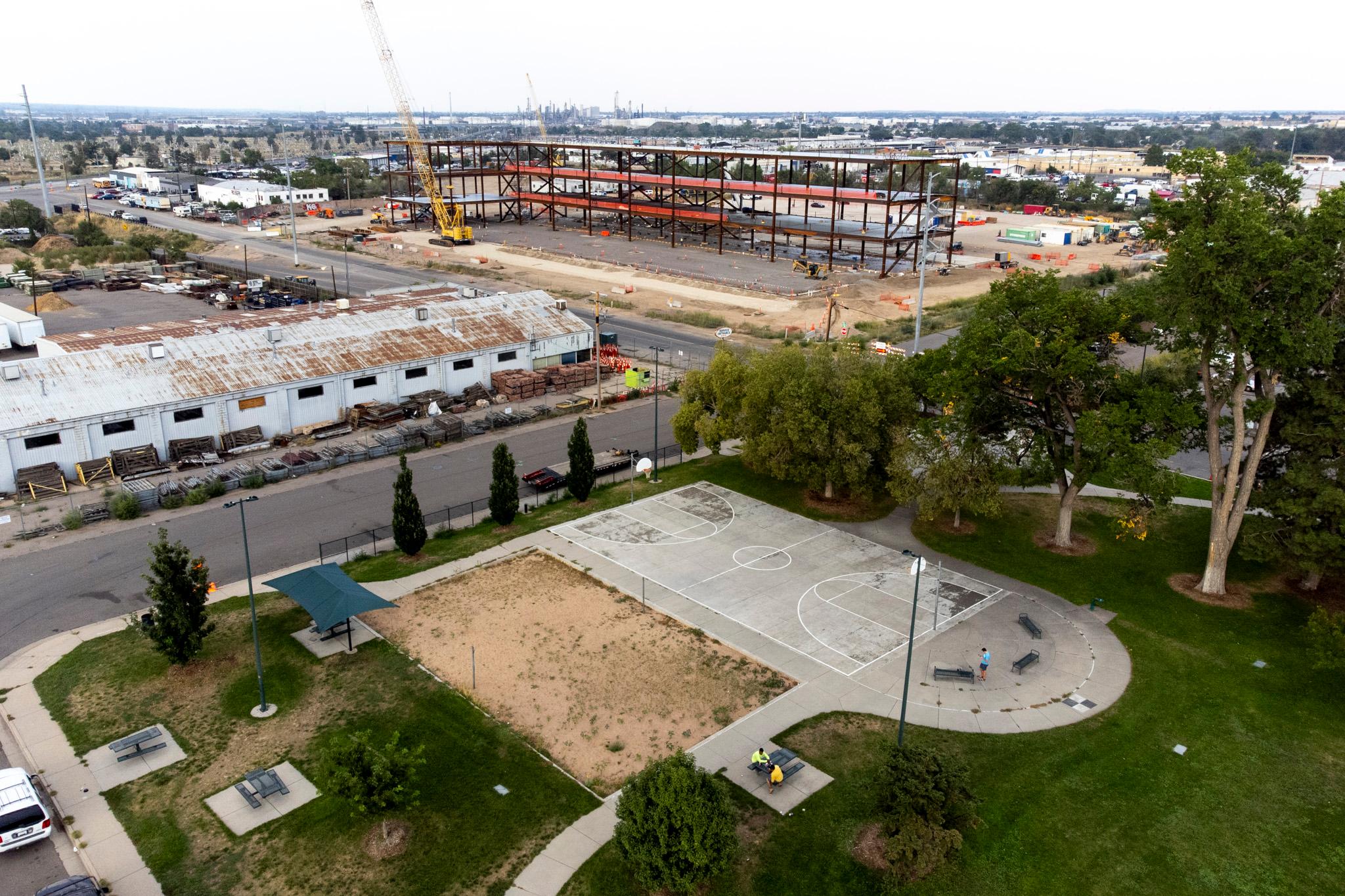Krystin Trustman loves her bathroom so much, she almost shed a tear when she first laid eyes on it. It's roomy with a roll-in shower that made bathing easier for the Lakewood resident who uses a wheelchair.
When you don't walk, you see the physical world differently than most people. A construction zone blocking your path on a sidewalk is a big deal.
"The first thing I do is look around and say, 'What is my option? If this sidewalk is closed, is there a way for me to get across the street safely?'" Trustman said in an interview.

Denver issues about 20,000 permits per year that let various organizations block traffic -- pedestrian and otherwise. Those permits equate to problems with closed sidewalks that force people walking and wheeling into the street. Sometimes all four corners of an intersection are off-limits, which is problematic because we have not mastered teleportation.
It's been about eight months since the streets department said it would embark on a long-term fix for the problem after being pushed by the Mayor's Pedestrian Advisory Committee and the Denver Streets Partnership. Now city reps say a new policy should be ready in April.
If it wanted to, Denver could start requiring pedestrian walkways at most new construction sites tomorrow.
That's an idea that's "being explored," according to Michael Koslow, the engineer working on the package of rule changes.
"There needs to be mediation with our rules and the mechanisms to enforce them," Koslow said.

Asked whether the city could just require all construction sites to provide adjacent walkways, Cindy Patton, who works in DPW's policy office, said yes. However, the city is focusing most of its attention on the "triggers" that lead to a lack of safe walkways or a lack of enforcement where they should exist, she said.
The city sanctions blocked sidewalks through agreements with contractors, so that's certainly one trigger. Another is the fact that only 16 inspectors exist for 20,000 or so permits. Then there are the fees.
Moving cars is literally worth more than moving pedestrians, according to Denver's decade-old policy.
It only costs contractors between 5 and 25 cents per linear foot to close a sidewalk, depending on the location. Closing a traffic lane costs between 15 cents and $2 per linear foot. And while the city prefers walkways, construction outfits only get a 10 percent discount on the permit fee if they provide one.
Staffers are looking into adjusting fees to discourage blocking the sidewalk and encourage a safe replacement path on the road, made of those big orange barriers, for instance. They're also studying policies in 16 cities like San Francisco, Philadelphia and Washington, D.C.
For Trustman, the changes can't come soon enough. She wants to see wide, dignified, well-lit paths -- not signs directing her to retrace her journey.
"I feel discriminated against," she said. "However, I cant go through my life feeling discriminated against or I would never leave my home, be pissed off all the time. I am willing to find those workarounds."













